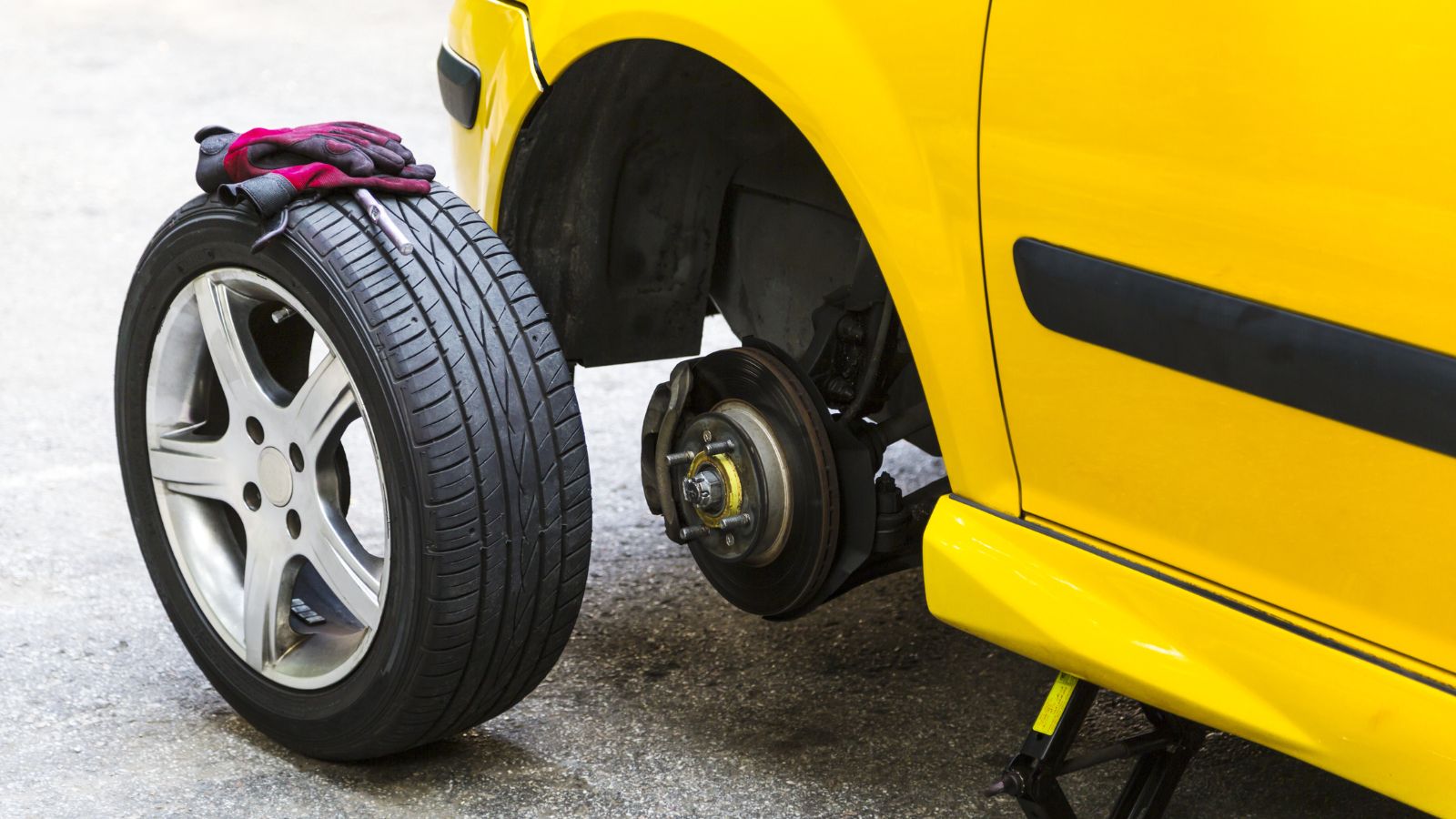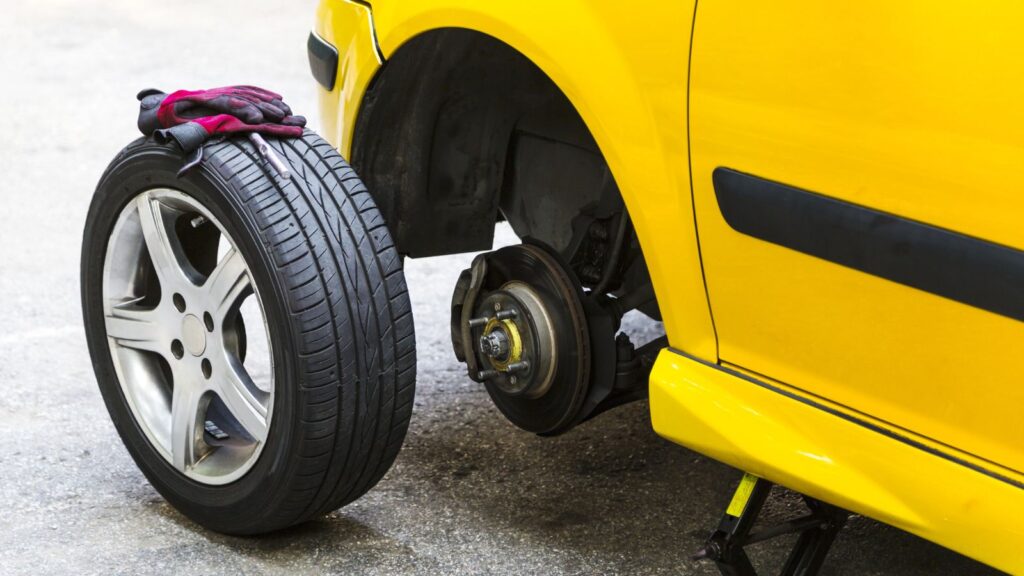Developing bad driving habits can significantly wear down your vehicle, placing it under unnecessary stress. Although drivers might adopt these habits to save time or money, they can end up costing much more in the long run.
Using Cheap Replacement Parts

Cheap, counterfeit replacement parts for vehicles will cost less than branded parts, but they have downsides that make them unsuitable for your car. TEC Automotive explains that “counterfeit car parts have not undergone the same strenuous testing and approvals processes which are enforced on genuine manufacturers,” so they could be of decent quality, but they are more likely to increase the risk of dangerous part failure.
Ignoring Fluid Checks

Brake fluid, as well as engine oil and transmission fluid, are important to monitor. Engine oil should be checked at least twice a month, brake fluid depends on the car’s manufacturer, and transmission fluid should be checked every 30,000 miles or three months. Without regular maintenance, these symptoms can break down when driving, with dangerous results.
Rough Starting and Stopping

Accelerating too quickly will cause damage along a vehicle’s drivetrain, and hard braking will quickly wear down brake pads and risk them overheating. It may be tempting to be rough when driving, but the long-term benefits of gentle driving habits far outweigh the temporary satisfaction of aggressive driving.
Shifting Gears Improperly

While skipping gears in a manual transmission car is fine when downshifting or upshifting, proper technique must be used to prevent damaging the gearbox. Motor Authority notes that “rev matching is essential when shifting from a low to a high gear” to stop the car from jerking or the wheels from locking.
Ignoring Warning Lights

While warning lights may be annoying and distracting, drivers may ignore them if they think their car is driving normally. However, Clift Auto warns that “ignoring these warning signs can result in costly repairs or even dangerous situations.” It’s best to get the issue checked out as soon as possible.
Neglecting Oil Changes

Oil lubricates the internal parts of a car’s engine, reducing friction and lowering engine temperatures. The oil will break down after around six months, making it less effective and necessitating regular changes to keep a vehicle running smoothly. Orchard Ford writes, “Neglecting your car’s oil can lead to serious consequences, including engine damage, reduced fuel economy, and even complete engine failure.”
Skipping Rotating Tires

Rotating your tires may seem unnecessary, but it could directly impact the car’s safety. RnR Auto Systems warns that “the biggest risk of not rotating your tires is causing extensive damage to your treads.” The damage could include feathered sidewalls, a chopped tread, and worn edges.
Overloading Your Vehicle

It may be tempting to store items in your car or load them to the brim when traveling. However, exceeding the manufacturer’s recommended weight limits can wear down tires and increase fuel consumption. Car Lingo warns that an overloaded car’s weight “will make it harder for the brakes and suspension to work properly,” which can be dangerous.
Neglecting Brake Pad Replacement

Common symptoms of worn brake pads include squeaking noises, vibration or grinding sounds, and taking longer to brake. Drivers shouldn’t ignore these signs; they are signs that the brake pads need urgent replacement. Mechanics recommend replacing brake pads every 25,000 to 65,000 miles.
Forgetting About the Air Filter

The air filter takes in air and filters out contaminants and pollutants, contributing to smooth engine performance. Ignoring signs of a clogged air filter can lead to irreversible damage, as accumulated debris can disrupt your vehicle’s congestion chamber.
Using the Wrong Fuel Type

The RAC says that after putting the wrong kind of fuel in a car, “you may experience a range of symptoms including the engine misfiring, a loss of power, and the smell of fuel within the vehicle.” The fuel tank may need to be drained before the car can be driven.
Ignoring Suspension and Alignment Issues

Signs of suspension or alignment problems can include the vehicle pulling to one side when driving and uneven tire wear. This can severely reduce driving comfort and the tire lifespan of the affected side, so drivers should get these problems checked out when they appear.
Delaying Windshield Wiper Replacement

Windshield wipers are essential for safe driving. Worn wipers will lead to viability issues in the windshield, making driving unnecessarily dangerous. Car owners should take the wipers to be replaced if they leave marks on the windshield.
Coasting

Coasting is a common bad car habit that many drivers think is harmless. But it has several downsides, including increased fuel consumption, putting extra wear on the brakes, and making it harder to stop the car when driving downhill.
Revving the Engine to Warm Up

While it may be tempting to rev the engine to warm up the car on a cold day, Slash Gear warns that the habit warms the engine up too fast, forcing it “to operate at high speeds without proper lubrication.” This increases wear on moving parts of the engine, which will lead to costly repairs.
Frequent Short Trips

Short car journeys can damage a car due to their frequent engine starts, which puts additional strain on the ignition system and starter motor. It’s best to avoid driving short distances regularly to avoid wearing down the engine.
Disregarding Car Washes

Motability explains that “dirt, mud, and salt can cling to your vehicle as you travel,” which can spoil a car’s paintwork. Regular washing and waxing will keep the car looking good and make its windshield, mirrors, and rear window clearer, making the car safer to drive.







